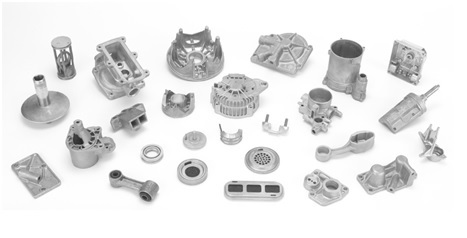Magnesium alloys are lightweight materials with many potential applications. Magnesium alloy thixotropic parts are composed of magnesium and aluminum. Magnesium alloys have a thixotropic structure and are easy to process. These components are lightweight and have a high strength-to-weight ratio.
Thixotropic parts have a unique structure that makes them easy to process. Magnesium alloys have a thixotropic microstructure that makes them easy to form. This makes them ideal for use in a variety of applications.
What is a magnesium alloy thixotropes parts?
The thixotropic parts are made of magnesium alloy. Magnesium alloys are thixotropic, which means that they become less viscous when stirred or shaken. This makes it easy to use and helps prevent part warping.

Properties of magnesium alloy thixotropes.
Magnesium alloy thixotropic components have various properties that are beneficial for certain applications. These properties include a low coefficient of friction, good wear resistance and high resistance to deformation. In addition, magnesium alloy thixotropic components are generally lightweight and have a high strength-to-weight ratio. This makes them ideal for a variety of applications, including transportation and manufacturing.
Manufacture of magnesium alloy thixotropic parts.
Thixotropic parts are manufactured by a process that combines magnesium alloys with thixotropic agents. The magnesium alloy is melted and poured into a mold, where the thixotropic agent is also present. This combination produces components that are thixotropic in nature. Thixotropic agents help keep the part in a liquid state when pouring, resulting in more accurate and consistent results.

Application of magnesium alloy thixotropic parts.
Applications for magnesium alloy thixotropic components can be found in a variety of industries. For example, in the automotive industry, thixotropic magnesium alloy components can be found in transmissions, engines and other components. They are also used in various components in the aerospace industry, including aircraft wings and fuselages.
Thixotropic parts made from magnesium alloys have many potential applications, including the automotive and aerospace industries.
-

- OEM háþrýstisteypu úr magnesíum ál ramma fyrir reiðhjól
-

- Magnesíum álfelgur þikómótandi deyja-steypu UAV hlutar
-

- Magnesíum álfelgur steypu rafmagns ökutæki miðfest mótorhús
-

- CNC machining auto dashboard bracket
-

- Magnesium alloy die-casting Auto parts Front bumper Anti-collision beam
-

- CNC vélaðir hlutar og íhlutir

 0086-750-5616188
0086-750-5616188 +86 13392089688
+86 13392089688 sales@zhongmei-tech.com
sales@zhongmei-tech.com







